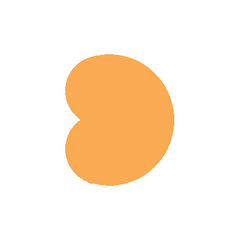 This month much has been written about books. Most recently Amsterdam was announced the World Book Capital by UNESCO. The city thrives on a long history of freedom of expression since the start of the first book printer in 1506. Because of this freedom of expression and the fact that guilds were in that time open to foreigners Amsterdam became the center of books. Today for every 4.000 residents of the city there is one bookshop. The Amsterdam World Book Capital theme is therefore Open Book, using icons as Spinoza, Anne Frank and Annie M.G. Schmidt.
This month much has been written about books. Most recently Amsterdam was announced the World Book Capital by UNESCO. The city thrives on a long history of freedom of expression since the start of the first book printer in 1506. Because of this freedom of expression and the fact that guilds were in that time open to foreigners Amsterdam became the center of books. Today for every 4.000 residents of the city there is one bookshop. The Amsterdam World Book Capital theme is therefore Open Book, using icons as Spinoza, Anne Frank and Annie M.G. Schmidt.
The city also hosts a beautiful exposition of 3.500 posters on how books have been promoted during the years. Worthwhile a visit.
A unique partnership between publishing houses, libraries and booksellers stimulates readership in The Netherlands. One of the activities is the Book Week. Since 1932 this event is organised, resulting in handing out a total of 25 mio free books. Last month during the Book Week 960.000 free books were handed out.
Despite the surge of the internet, books are selling well. In Flanders sales in 2007 increased with 8 percent, resulting in a total sales of 11 mio books. On average every family bought 4 books in 2007. (In the Netherlands this figure is 6,4 books). In the UK sales of books increased with 9 percent. The biggest increase was among the new titles published in 2007, 36 percent more titles came to market, more than ever before. And as Nielsen states Print-on-Demand is driving this growth, proving the Long Tail.
 The German Award "Schönste Bücher aus aller Welt" will be handed out in Leipzig on March 13. Of 704 books from 36 countries 14 books were awarded. The highest award went to Blexbolex, L'imagerie des gens (Paris) and the Gold medal to Vinex Atlas (Rotterdam). The criteria have to do with text and visual integration, the material choice (ink, paper, cover) and production qualities.
The German Award "Schönste Bücher aus aller Welt" will be handed out in Leipzig on March 13. Of 704 books from 36 countries 14 books were awarded. The highest award went to Blexbolex, L'imagerie des gens (Paris) and the Gold medal to Vinex Atlas (Rotterdam). The criteria have to do with text and visual integration, the material choice (ink, paper, cover) and production qualities.







